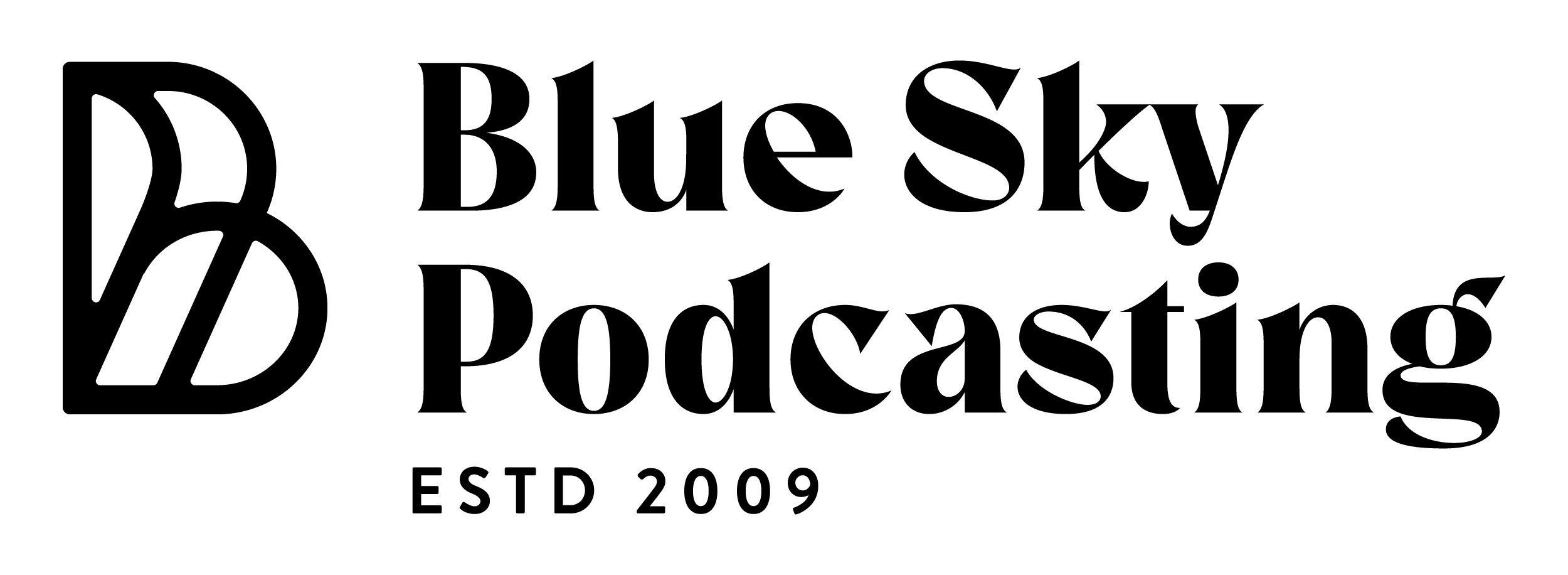Weighing the Pros and Cons: Should Your Business Start a Podcast?
One of the reasons we started Blue Sky Podcasting is because we saw how social media shifted the way businesses related to their customers and potential customers in the early 2000’s. Fast forward 20 plus years, and it’s clear that consumers no longer enjoy a faceless or soulless brand. They want to know who they do business with. While podcasts offer numerous advantages for businesses, it's important to consider both the pros and cons before launching a podcast.
Pros of Businesses Having a Podcast:
Audience Engagement: Podcasts provide a unique opportunity for businesses to connect with their target audience on a more personal level. By delivering valuable content through a conversational and intimate format, businesses can build a loyal following and establish themselves as industry experts.
Brand Building: Podcasts allow businesses to showcase their brand's personality and values. Through storytelling and engaging discussions, businesses can strengthen their brand identity, increase brand awareness, and foster a sense of trust and authenticity among listeners.
Thought Leadership: Hosting a podcast enables businesses to position themselves as thought leaders in their respective industries. By sharing insights, expertise, and industry trends, businesses can establish credibility and attract a wider audience while solidifying their reputation as trusted authorities.
Reach and Accessibility: Podcasts offer a convenient and accessible way for businesses to reach a global audience. With the rise of mobile devices and streaming platforms, listeners can tune in to podcasts anytime, anywhere, allowing businesses to extend their reach beyond traditional marketing channels.
Cons of Businesses Having a Podcast:
Time and Resource Investment: Producing high-quality podcast episodes requires time, effort, and resources. From content creation and recording to editing and promotion, running a podcast can be a significant commitment for businesses, especially for those with limited resources or small teams.
Competitive Landscape: The popularity of podcasts has led to a highly competitive landscape, with countless shows vying for listeners' attention. Businesses need to invest in creating compelling and unique content to stand out from the crowd and attract and retain a dedicated audience.
Long-term Consistency: Consistency is key to maintaining a successful podcast. Regularly producing new episodes and delivering consistent value can be challenging, especially as other business priorities may arise. Without consistent content, businesses may struggle to retain listeners and lose momentum.
Measurement and ROI: Measuring the return on investment (ROI) of a podcast can be challenging. Unlike other marketing channels, such as social media or paid advertising, it can be difficult to track specific metrics or attribute direct conversions to podcast listenership. Businesses need to establish clear goals and determine alternative ways to gauge the success and impact of their podcast.
While podcasts offer businesses a powerful platform to engage with their audience, build brand awareness, and establish thought leadership, it's crucial to consider the investment of time, resources, and competition, as well as the challenges in measuring ROI. By carefully weighing the pros and cons, businesses can make an informed decision about whether launching a podcast aligns with their goals and resources.
